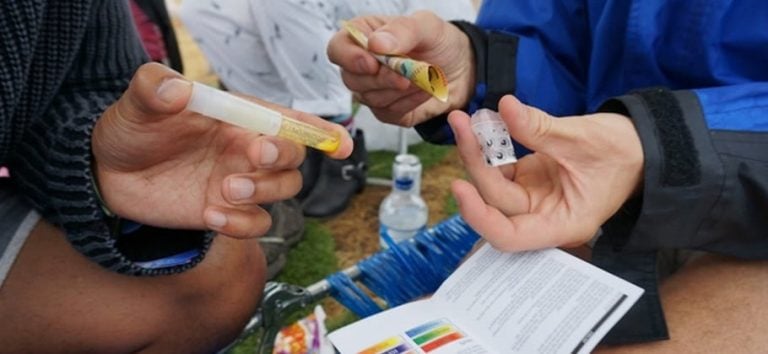If you’ve got even a casual interest in music festivals, the chances are pretty high that you probably would’ve been made aware of the controversy surrounding pill testing. Now, after years of debate on the topic, Channel 7 have become the latest program to discuss the idea thanks to a recent segment on their weekly Sunday Night program.
For years now, there has been a push to introduce pill testing at festivals. This plan intends to allow those who use illicit substances at festivals to test their drugs in order to confirm they are as they expected them to be, with hopes of reducing unexpected side effects such as overdoses and death.
It makes sense, after all, most would prefer not to have to hear the tragic news about festival-goers who tragically passed away after their drugs were manufactured with an unexpected substance. However the issue is that it’s still illegal, with police choosing instead to continue their current tactics of maintaining a constant presence, sniffer dogs, and a zero-tolerance approach, intending to scare punters into compliance. Now, Channel 7 has attempted to provide a rather rational case for pill testing, hoping to appeal the parents of young concertgoers.
Following in the vein of similar investigations undertaken by programs such as 60 Minutes, Sunday Night’s report saw reporter Denham Hitchcock accompanying a handful of young men to the Bohemian Beatfreaks festival in Byron Bay, while interviewing drug experts, police spokespeople, and family members who know the pains of losing a loved one.
The report began by showing three young men as they utilised pill testing kits to check their drugs, illustrating the rather straightforward nature of the process. Soon though, the necessity of testing pills becomes clear, as one of the MDMA tablets that was tested is revealed to have actually been made from bath salts.
“I’m a drug user, and inherently by taking drugs I’m putting myself at risk,” explains one of the young men. “But there are steps you can take to minimise that risk, so why wouldn’t you do it?”
“If the status quo continues where no one says anything about it, and we don’t have this discussion, people are going to keep dying.”
Love Music?
Get your daily dose of metal, rock, indie, pop, and everything else in between.
Sunday Night also spoke to Adriana Buccianti, whose son Daniel passed away from respiratory failure after ingesting drugs at the Rainbow Serpent festival in 2012. She believes that there needs to be education about drugs and what they contain, rather than a complete zero-tolerance approach.
“For any of those parents that are watching today and know that their kids are at that age – that sooner or later they’re going to hit a club or festival – they should have that discussion with their children about drugs,” pleaded Ms. Buccianti. “Not this ‘don’t take it’, because we all know what it’s like – the first thing you do is go take it.”
Canberra toxicologist and emergency room physician Dr David Caldicott, who has frequently spoken in support of pill testing at festivals, also shared his insight, again calling for festival-goers to be given the chance to test their pills at events.
“I’m a huge believer in parties […] and the problem is that ensuring that those parties are safe,” he said. “They’re doing what they can, but as a medical profession, we could help them.”
However, the biggest obstacle in introducing pill testing into Australia is the police themselves, with a spokesperson for the New South Wales police noting that while pill testing does tell you if what you’re ingesting is ‘safe’, it can’t tell you exactly what it will do to you.
“Pill testing doesn’t tell an individual what the impact is going to be on their body – the effects it will have,” the spokesperson said. “There are a range of people who can be cajoled into using tablets thinking they’ve got something that’s tacitly safe for them.”
“I understand people have said ‘we’re not saying that,’ but the bottom line is that it can be taken that way by often young and vulnerable people who might not otherwise engage in taking pills, but for the safety supposedly that this might provide. ”
“The most important thing here is to keep people alive,” concluded David Caldicott. “And those people who are stopping us from doing just that, they’ve got a little bit of blood on their hands.”

































